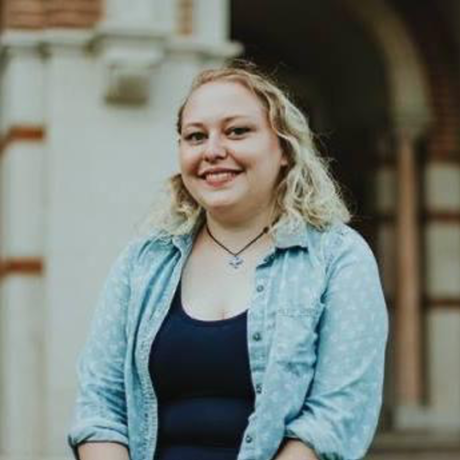
Katie Webber, 2020 Congregational Engagement Intern
I started my internship with the Episcopal Health Foundation (EHF) on March 16, 2020. My first day in the office was also my last day in the office. I took my work materials home with me that day, not knowing that it would be my last normal day, and that for the next ten months (and ongoing) we would all shift to work from our homes. Still, the work did not stop and we all adapted to a world impacted by COVID.
When I came to the Episcopal Health Foundation I was so excited to be working with churches directly. I had spent the last six months working on communications for an interfaith organization. I was able to report on the work of the wonderful congregations we were working with, but I didn’t get to spend any time with them. This opportunity to interact directly with churches was so exciting to me, and even though we weren’t able to meet in person I was so invigorated by the connections that I was able to make and the stories I heard from churches working across the diocese.
Some of my favorite stories I helped capture were about how food-focused ministries were shifting to meet people’s needs during COVID. I held a Zoom interview with Ellen Eby, who told me all about how Peach Street Farmer’s Market, a program started by Holy Comforter Episcopal Church in Angleton, was able to shift and help their community access local food safely during the pandemic. Also, at a time when small businesses across the United States were struggling, businesses in Angleton could still be safely connected to their base through the market. This was not something that could have come about in the same way without the longstanding structure of the Farmer’s Market, or the important base of relationships between the church, businesses, and community that had been fostered over many years. I was so delighted to be able to tell this chapter in their community’s story.
In addition to working with congregations, I got a chance to work with many other organizations throughout my time at EHF. The opportunity to learn from Project Curate was one of my most meaningful experiences throughout my internship. They are wonderful at leading conversation amongst church leaders which led to genuine introspection and self-interrogation as churches are approaching racial reconciliation. They hosted and led each group into the recursive practice of reflection paired with action. It is easy to only sit in reflection or act without a real plan for continuing the work, but Project Curate’s ongoing “Conversations on Racial Inequality,” will continue this year and offers a grounding to both, which is so necessary.
I am so grateful for my time with the Episcopal Health Foundation and the opportunity to work alongside so many wonderful congregations and organizations. In this tumultuous year, I was able to see how churches and other institutions supported their communities with mental health and poverty in the midst of a pandemic, organized for the census and a national election, and found a renewed focus on racial justice initiatives, especially in response to the murder of George Floyd. I know that none of these overlapping issues will be solved with a vaccine or an election, but I am glad to have been able to witness the ways communities are facing these challenges holistically and in despite of all of these challenges in order to impact the health of individuals and communities.